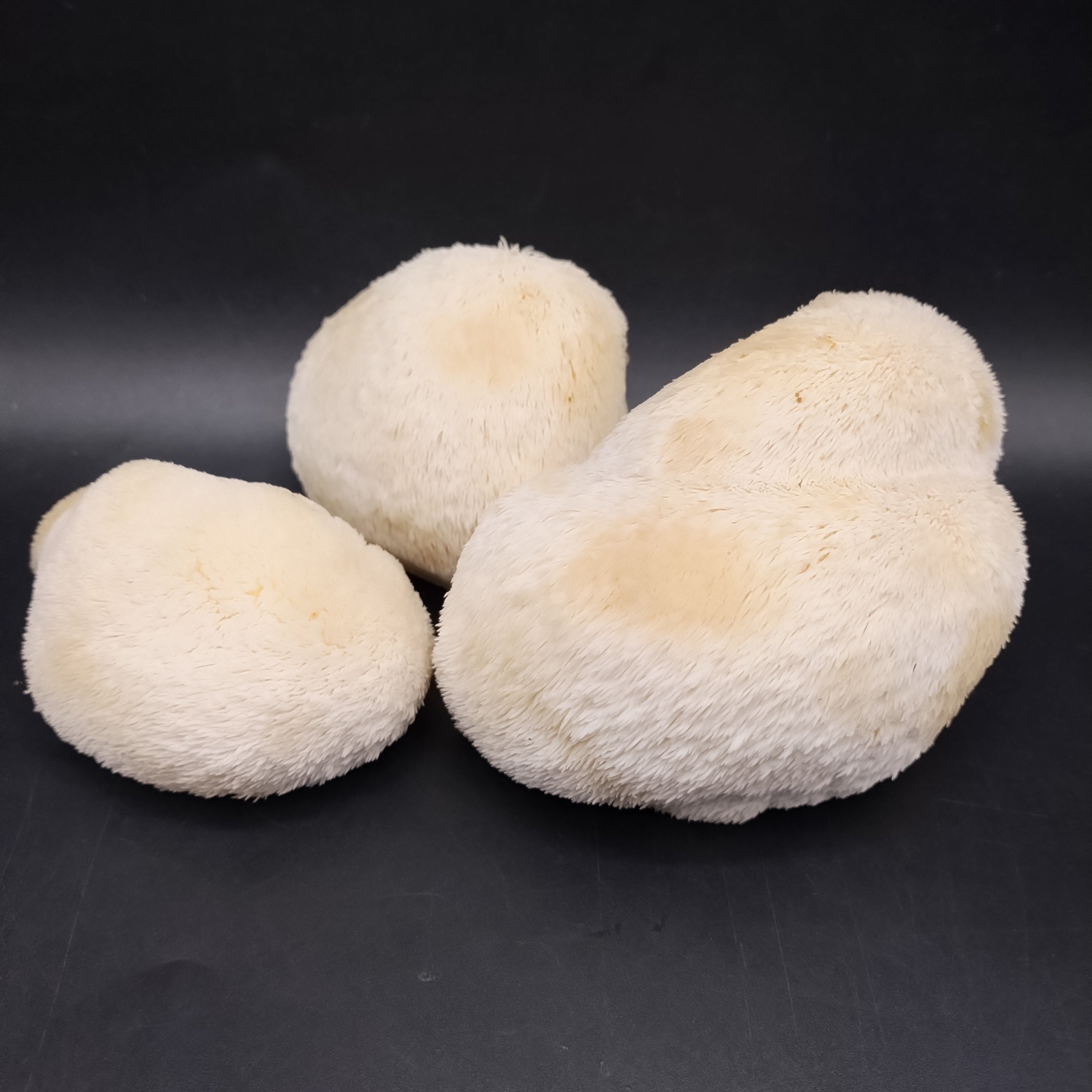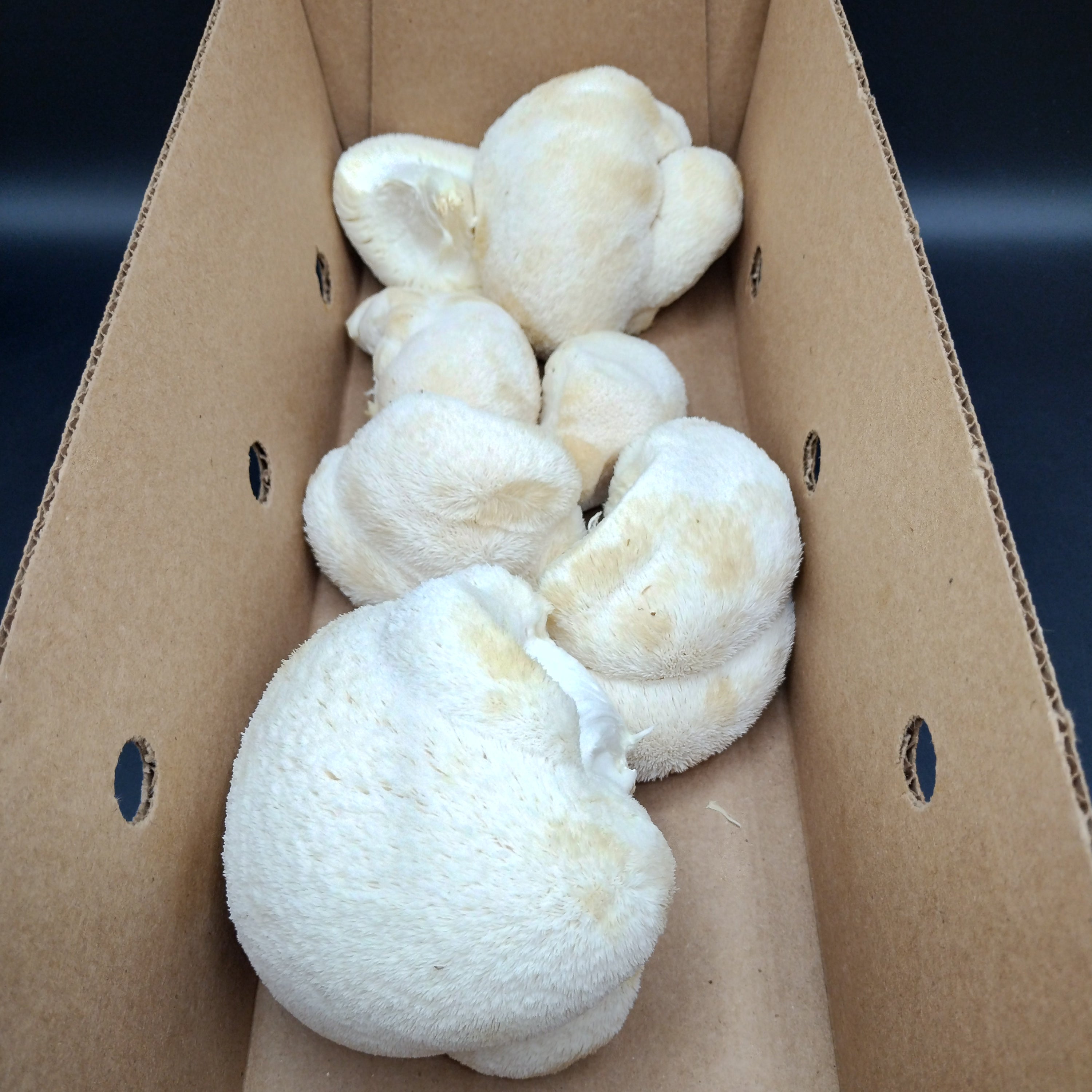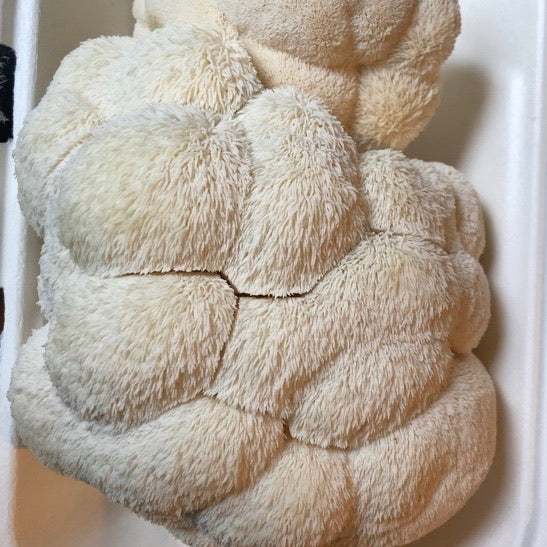Hericium Erinaceus
“The Secret Agent”
This sneaky Secret Agent is a master of deception! At first glance it might be cauliflower, but go ahead - cook it up and take a bite! That delicate, meaty texture - is it lobster? Crab? Can it really be a mushroom?! It has a sweet and mild taste, but with its porous nature, it disguises itself with surrounding flavours like a tasty little spy!
Our family loves to slice this one up into quarter-inch thick "steaks", then dry-fry them to brown both sides, before adding garlic, butter, and onions and cooking until tender. However, these beauties also go great in sauces, stir-fries, stews, curries, and as a meat or tofu substitute in any of your favourite dishes! In the meantime, store them in your fridge in a paper bag for up to a week.




